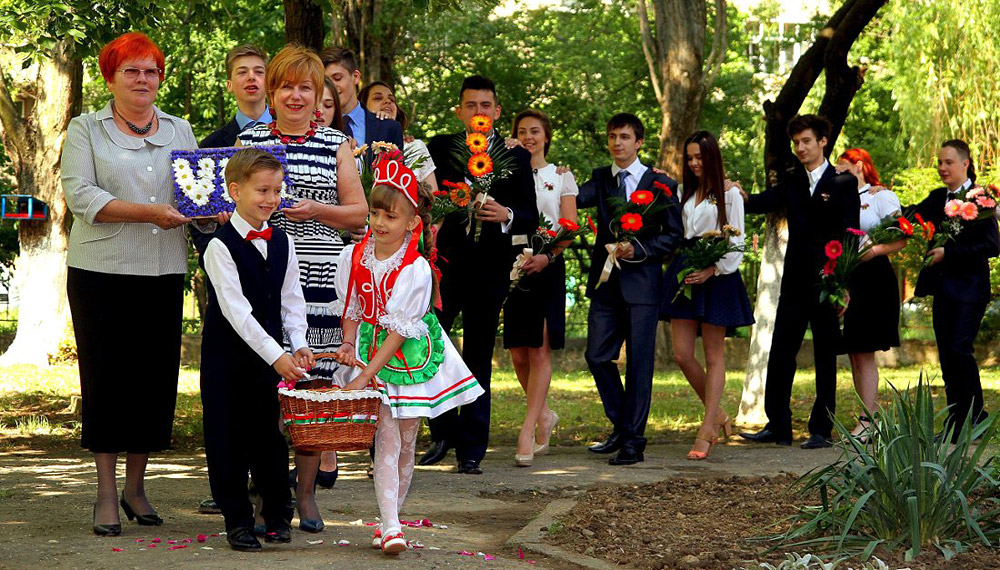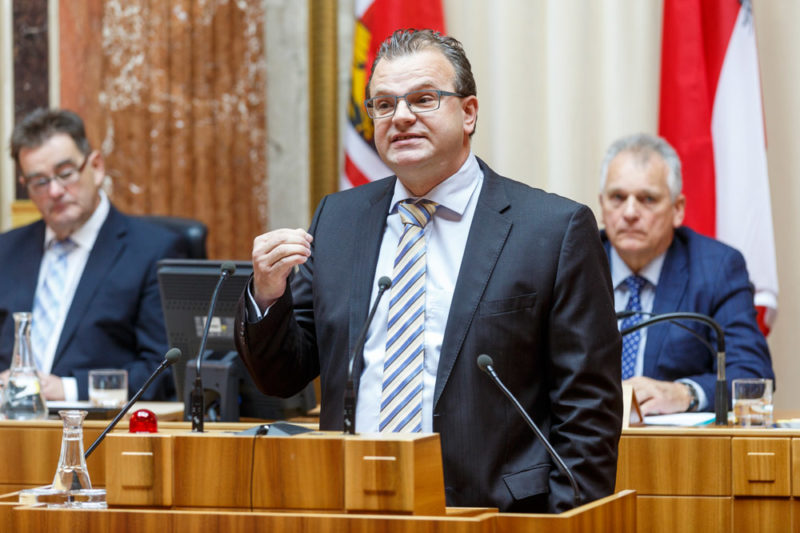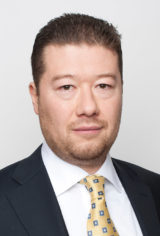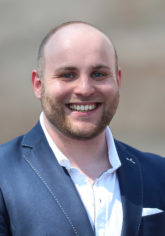European politicians: ‘Kiev, respect minority rights!’
Increasing tensions in Transcarpathia: European politicians urge protection of the rights of national minorities in Ukraine and call for autonomy.
Published: May 24, 2017, 3:01 pm
The issue of the freedom of speaking minority languages in Ukraine has been brought up in the Ukrainian press again. Somebody had installed large signs recently in Transcarpathia in the Beregovo (Beregszász) and Vinohradski (Nagyszőlősi) regions near the border to Hungary, promoting the use of the Hungarian language. A debate now rages in Ukraine about autonomy rights for different nationalities – as well as a debate about the federalisation of Ukraine. The Kiev regime has tried to prevent these political moves and views the Hungarian signs as a provocation.
As the Hungarian newspaper Magyar Hírlap already reported in December 2016 and January 2017, groups of deputies of the Verkhovna Rada (Ukrainian parliament) issued new draft language acts. According to the drafts No. 5556 (Ukraine’s law about languages in Ukraine) and No. 5670 (Ukraine’s law about state language) in the parliament, at state events, in official documents of state institutions, in local authorities and at the country’s borders, the Ukrainian language is now mandatory.
Deputies of the Beregovo (Beregszász) regional council turned to President Petro Poroshenko and Prime Minister Volodimir Hroysman, because they perceive these drafts as practically ruling out the use of minority languages or at least significantly complicate their public use. The drafts would mean a serious blow to education too: from kindergarten to university, lectures can only be held in Ukrainian. A minority language such as Hungarian may still be taught at public education institutions, but at universities only as a foreign EU language.
The president of the Transcarpathian Hungarian Cultural Alliance (KMKSZ) told Magyar Hírlap in January that both drafts were aimed at “significantly limiting the language rights of ethnic minorities”. According to the politician, the press has conveyed the outrage, while parliament passes laws which are limiting language rights. He warned that these proposals could cause tension in society. In March 2017, KMKSZ collected 65 000 signatures against the proposals limiting language rights.
As Interfax Ukraine reported in April 2017, the State Secretary of the Ministry of Human Capacities of Hungary, Miklos Soltesz, urged the Ukrainian government not to restrict rights of the Hungarian minority in Ukraine, including the right to dual citizenship.
There is also the question of autonomy. The Hungarian community of Transcarpathia has handed an application to President Poroshenko for the initiation of signing of the agreements on the delimitation of powers according to which the Transcarpathia region should be given autonomy.
The issue of Hungarian autonomy has been causing tensions in Ukraine for quite a while, among other things by the misquoted, or even falsified statements of Hungarian politicians in the Ukrainian press, angering Ukrainian nationalists. The Ukrainian People’s Front deputy Yuri Bereza says that all aspirations to give more competencies to Transcarpathia is a manifestation of separatism. He said that Kiev should act firmly so that no one would ”stray away”. The People’s Front party received over 22 per cent of the popular vote in the 2014 elections.
Ilya Kiva, adviser to the Minister of internal affairs, said things like aspirations for autonomy and the use of minority language, count as separatism, so they should be stopped.
For at least the past three years, the Ukrainian secret service, the SBU, has frequently arrested minority rights activists in the region, in actions which are criticised also by European politicians.
The Hungarians in Ukraine number some 156 600 people, according to the Ukrainian census of 2001, and are the fifth largest national minority in the country. Some 134 825 Romanians and 324 525 Moldovans live in Ukraine as well, of which at least 32 000 in troubled Transcarpathia.
Especially high level politicians from EU countries have taken note of the increasing and severe oppression against national minorities in Ukraine and have called for minority rights and autonomy to be respected.
Austrian MP Hans-Jörg Jenewein from the Freedom Party, who represents the Austrian capital Vienna at the Austrian Federation Council, expressed serious concern about the situation of ethnic and national minorities in Ukraine in an interview with FreeWestMedia:
“There are around 150 000 Hungarians living in Transcarpathia. The policy of the Kiev government of today towards the Hungarians can’t be described as friendly at all. And it would be in the interest of Kiev to secure the rights of the Hungarians – Hungary’s Prime Minister Viktor Orbán is well known to be very consitent when it comes to the defence of the interests of his people.
“Around 400 000 ethnic Romanians also live in Ukraine, of which 180 000 reside in the region around Czernowitz – a former part of “Alt-Österreich”. Northern Bukovina is in fact a region with a Rumanian identity. The peaceful co-existence of different ethnicities and nationalities in the former Danube Monarchy is proof that the current problems in Ukraine are manufactured.
“If the Kiev administration doesn’t come to the conclusion very soon that the problem can only be solved by an honest and equal dialogue and cooperation, secessionist movements may be formed in future which may endanger the existence of the Ukrainian state.”
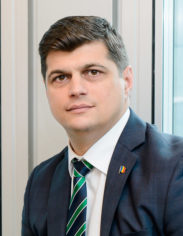
MEP Laurentiu Rebega, leader of the party Forta Nationala and vice-president of the group Europe of Nations and Freedom in the European Parliament.
Romanian MEP Laurentiu Rebega, leader of the party Forta Nationala and vice-president of the group Europe of Nations and Freedom in the European Parliament (with French Front National of Marine Le Pen, German AfD, Italian Lega Nord and Austrian FPÖ), commented as well for FreeWestMedia:
“The rights of ethnic minorities in Ukraine must be observed and maintained, even increased, as we know that ethnic Romanians from that country struggle to preserve their identities, their schools, even their churches. The Romanian language, Romanian culture, Romanian traditions are all under a lot of pressure in Ukraine and if we do not react, there is a risk that soon enough all the ethnic minorities in Ukraine will be assimilated. Ukraine must respect the rights of other communities within their country in the same way that the Ukrainian minority in Romania and in Europe is respected and has all the rights to express and develop itself. In Romania, Ukrainians are represented in parliament, for instance, and their heritage is supported by state funds. We expect Ukraine to do the same for the Romanian population as well!”
Czech MP Tomio Okamura, leader of the party Freedom and Direct Democracy, told FreeWestMedia:
“The minority issue in Ukraine has always been a problem. Ukrainians are nationalists and, in fact, hardly tolerate any of their minorities and neighbours. They hate the Jews, Ruthenes, Poles, Russians, Romanians, Hungarians. And the Maidan and the subsequent semi-fascist nationalist governments are spreading even more national hatred towards non-Ukrainians as a distraction from their own crimes and especially the gigantic corruption and stealing.
“In the case of Subcarpathian Russia, which is located in the west of today’s Ukraine, it has never been Ukraine. It is a land which historically belonged to Poland, Hungary and later to Czechoslovakia, and predominantly Ruthenians live there.
“From our point of view, it is, of course, unbelievable that the European Union and its leaders are blind and deaf to the untruthfulness of Ukraine. Even more serious than these language laws, are the crimes which the Ukrainian army commits in the east, where they have murdered their own citizens for several years now without interruption.”
Also Markus Frohnmaier, leader of the youth organization of the Alternative für Deutschland party and candidate for the Bundestag, expressed his concern about the situation of ethnic minorities in Ukraine in an interview with FreeWestmedia:
“Ukraine has the obligation to respect the rights of national and ethnic minorities on its territory. Today, we are concerned about the situation especially of the Hungarian and Romanian minorities in Ukraine, who are suffering under the Kiev language and cultural regime.
“Young Hungarians and Romanians should have the chance to grow up within their own cultural framework and shouldn’t be bothered by the ideas of some crazy Ukrainian so-called ‘nationalists’, who in reality simply hate everyone who isn’t Ukrainian. We will observe very intensively the moves by Kiev and will defend the rights of the minorities in Ukraine on all political levels.”
All rights reserved. You have permission to quote freely from the articles provided that the source (www.freewestmedia.com) is given. Photos may not be used without our consent.
Consider donating to support our work
Help us to produce more articles like this. FreeWestMedia is depending on donations from our readers to keep going. With your help, we expose the mainstream fake news agenda.
Keep your language polite. Readers from many different countries visit and contribute to Free West Media and we must therefore obey the rules in, for example, Germany. Illegal content will be deleted.
If you have been approved to post comments without preview from FWM, you are responsible for violations of any law. This means that FWM may be forced to cooperate with authorities in a possible crime investigation.
If your comments are subject to preview by FWM, please be patient. We continually review comments but depending on the time of day it can take up to several hours before your comment is reviewed.
We reserve the right to delete comments that are offensive, contain slander or foul language, or are irrelevant to the discussion.

NOAA Predicts Zero Sunspots for Almost the Whole 2030s
CLIMATEThe United States' government scientific organization, the National Oceanic and Atmospheric Administration (NOAA), predicts zero sunspots from 2031 to 2040. This is an extreme situation that has not occurred in as long as humanity has been counting sunspots, and it leads us into uncharted territory in terms of our solar system. However, this prediction aligns with the warnings of the world-renowned solar researcher Valentina Zharkova for many years, who indicated in 2019 various signs of this catastrophic phenomenon, including the extreme hailstorms we have seen in Europe and the world this summer. The forecast and various observations this year give cause for very significant concern. In this unique analysis, Free West Media explains why.

European Nationalist Parties Forge Cooperation Ahead of EU Elections
EUROPEAN ELECTIONSOn Saturday, August 26, representatives of six European nationalist parties gathered in Budapest. The meeting was initiated by the Hungarian party Mi Hazánk and took place in the national parliament. Representatives of the parties signed a joint declaration that not only reaffirms the parties' friendship but also their unity on a range of complex political issues. A surprisingly clear and radical manifesto was established. The hope is that this cooperation will lead to success in the EU elections and eventually result in the formation of a group in the European Parliament. For Swedish nationalism, this meeting marks a success as Sweden, for the first time, has a party represented in a leading nationalist cooperation in Europe. Free West Media was present at this historic event.

Turkey Believes Sweden Hasn’t Done Enough
Sweden will have to wait a bit longer for NATO membership, according to Turkey's Justice Minister Jilmaz Tunc. First, Sweden must extradite the "terrorists" Turkey wants and stop the desecration of the Quran.

Swedish Weapon Takes Down Russia’s Best Attack Helicopter
The Russian attack helicopter Ka-52 is considered one of the world's best and has struck fear in Ukraine, where it has hunted down tanks and other armored vehicles, often beyond the range of many light anti-aircraft systems. However, it has met its match in the Swedish air defense missile system RBS 70, which has quickly led to significant losses for the Russian helicopter forces.

Strong Confidence in German AfD
Alternative for Germany (AfD) held a party conference on July 29-30 to select candidates for the upcoming EU election next year. EU Parliament member Maximilian Krah, belonging to the party's more radical, ethnonationalist faction, was appointed as the top candidate. The party's two spokespersons delivered powerful speeches criticizing the EU's failed migration policy and trade sanctions that isolate Europe and Germany from the rest of the world. They argued that it's time for the EU to return a significant portion of its power to national parliaments. However, they have dropped the demand for Germany to exit the EU.

The Establishment Wants to Ban Germany’s Second Largest Party – for the Sake of Democracy
The rising popularity of AfD has raised strong concerns within the establishment. Despite lies and demonization in the media and isolation from the overall political establishment, the party continues to grow. Certain representatives of the party are accused of becoming increasingly "extreme," and in an unusual move, the influential weekly newspaper Der Spiegel demanded that AfD be "banned."

Dutch FvD break through the media blockade
What is happening in the Netherlands? It is often difficult to follow events in other countries, especially when distorted by system media. We give Forum for Democracy (FvD) the opportunity to speak out on the political situation in the Netherlands and the staunch resistance they face in trying to save the country.

The Ursula von der Leyen Affair
After a criminal complaint in Belgium against the President of the European Commission, the so-called SMS-case, now takes a new turn. The judge responsible for the investigation will likely gain access to the secret messages exchanged between Ursula von der Leyen and Albert Bourla, CEO of Pfizer, at least if they haven't been deleted.

Publisher of Unique Literature Worldwide Blocked by International Distributor
Arktos has distinguished itself by publishing groundbreaking philosophers and social critics. Now, the publisher's international distributor has abruptly terminated the cooperation, and more than 400 already printed titles cannot reach their audience. There is strong evidence that the distributor has been under pressure, something that has also happened in Sweden. We have spoken with Arktos founder Daniel Friberg about the ongoing struggle for freedom of speech in a shrinking cultural corridor.

Care prompts bishops to criticize transgender ideology
The Catholic bishops of the Scandinavian countries presented an open five-page letter criticizing transgender ideology on March 21, just before Easter. The document primarily expresses care and advice and was read aloud in Catholic churches in Sweden, Norway, Finland, Denmark, and Iceland. Cardinal Anders Arborelius, Bishop of Stockholm, is one of the signatories of the document.





